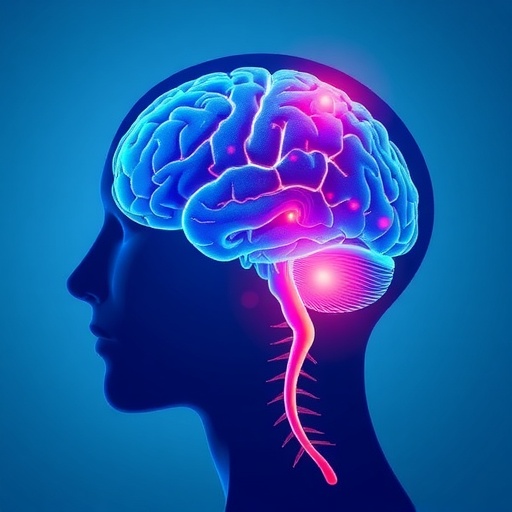Everyday Speech as a Window into Brain Health: Baycrest Study Unveils New Frontiers in Cognitive Assessment
In a groundbreaking study poised to redefine how cognitive health is monitored, researchers from Baycrest, the University of Toronto, and York University have demonstrated that the patterns of everyday speech reveal subtle yet significant indicators of brain function. The research, recently published in the Journal of Speech Language and Hearing Research, highlights how natural conversation metrics—such as pauses, filler words like “uh” and “um,” and moments of word retrieval difficulty—correlate strongly with executive functioning abilities. These executive functions are critical cognitive skills underpinning memory, planning, and mental flexibility.
The implications of this study are profound. For decades, neuroscientists and clinicians have sought accessible, non-invasive, and reliable markers of early cognitive decline, particularly in aging populations vulnerable to dementia. Traditional assessments, which often require structured tests administered in clinical environments, are labor-intensive and susceptible to practice effects, where repeated testing artificially inflates performance due to familiarity rather than genuine cognitive health. By contrast, this novel study leverages natural speech analysis—an everyday, ecologically valid behavior—to provide a non-disruptive, scalable biomarker for brain health.
The methodology was both innovative and rigorous. Participants spanning a broad adult age range were prompted to describe complex, evocative images in their own words, generating spontaneous speech samples. Simultaneously, these individuals underwent standardized tests measuring executive function. Harnessing advances in artificial intelligence and machine learning, the researchers dissected these recordings down to a granular level, extracting hundreds of subtle acoustic and temporal features of speech, including duration and frequency of pauses, filler word usage, speech rate variability, and hesitations indicative of lexical retrieval challenges.
Remarkably, the analysis revealed that these speech features predicted cognitive test outcomes with significant reliability, transcending demographic variables such as age, sex, and education. Importantly, this association emphasizes the potential of speech timing as a sensitive proxy for neural processing speed and cognitive efficiency—metrics notoriously difficult to evaluate outside of specialized laboratory settings.
Executive functions, integral to everyday decision-making and adaptive behavior, decline gradually as part of the normal aging process but are notably impaired in the early stages of dementia-related neurodegeneration. Detecting deviations from expected trajectories in these skills is critical for timely intervention. Yet conventional cognitive batteries often fall short, hampered by their logistical complexity and inability to capture subtle transitions. Natural speech, being ubiquitous and effortless to collect repeatedly, opens unprecedented possibilities for longitudinal monitoring without burdening the individual.
Another salient innovation of this approach lies in its ecological validity. Unlike time-constrained cognitive tasks, spontaneous speech unfolds organically, reflecting the individual’s typical processing rhythms and communicative patterns. This contextual authenticity offers a rich substrate for detecting nuanced shifts in cognitive status that artificial testing environments might overlook or mask.
Experts highlight that the potential applications extend beyond clinical diagnostics. Speech-based biomarkers could revolutionize remote monitoring, enabling individuals to complete assessments unobtrusively in home settings via smartphones or voice-activated devices. This digital health paradigm shift would empower real-time tracking of cognitive trajectories, facilitating early detection of pathological changes and expanding opportunities for preventative care and clinical trials.
Dr. Jed Meltzer, senior scientist at Baycrest’s Rotman Research Institute and lead author, underscores the broader significance: “Speech timing is more than just a stylistic trait—it’s an exquisitely sensitive barometer of brain health.” He envisions a future where natural speech analysis is seamlessly integrated into routine healthcare workflows, augmenting traditional tools and enriching our understanding of the aging brain.
Nevertheless, the researchers caution that this pioneering work represents an initial but critical step. Longitudinal studies are essential to disentangle the complex interplay between normal cognitive aging and early pathological decline. Only through tracking individuals over extended periods can speech-based metrics be refined to distinguish transient fluctuations from progressive impairment reliably.
Furthermore, the integration of speech analysis with multimodal data streams—such as neuroimaging, genetic markers, and other behavioral indicators—could enhance specificity and predictive power, ushering in an era of precision diagnostics tailored to individual risk profiles. Such comprehensive models hold promise to transform dementia research and clinical care profoundly.
The study’s success owes in part to cross-disciplinary collaboration, combining expertise in neurology, linguistics, artificial intelligence, and geriatrics. It also benefitted from funding provided by the Mitacs Accelerate program and the Natural Sciences and Engineering Research Council of Canada (NSERC), underscoring the importance of sustained investment in interdisciplinary aging research.
Baycrest stands at the forefront of this transformative scientific landscape. With a century-long legacy of innovation in brain health and aging, Baycrest fosters cutting-edge research alongside exemplary elder care. Its affiliations with leading institutions and consortia amplify its capacity to translate research breakthroughs into tangible health solutions globally.
In sum, this study unveils a compelling new dimension to cognitive assessment—one that transcends traditional boundaries through the lens of naturalistic speech. By tapping into the subtleties of everyday conversations, scientists are charting a promising path toward early, accessible detection of brain changes, ultimately aiming to improve outcomes for millions facing cognitive decline and dementia worldwide.
Subject of Research: Natural speech patterns as biomarkers for executive function and brain health across the adult lifespan
Article Title: Natural Speech Analysis Can Reveal Individual Differences in Executive Function Across the Adult Lifespan
News Publication Date: November 11, 2025
Web References:
https://www.baycrest.org/
https://doi.org/10.1044/2025_JSLHR-24-00268
References:
Wei et al., 2024 – Study linking faster talking speed with preserved cognition in older adults, referenced as foundational research within the article.
Keywords: Dementia, Aging populations, Older adults, Speech, Cognition




